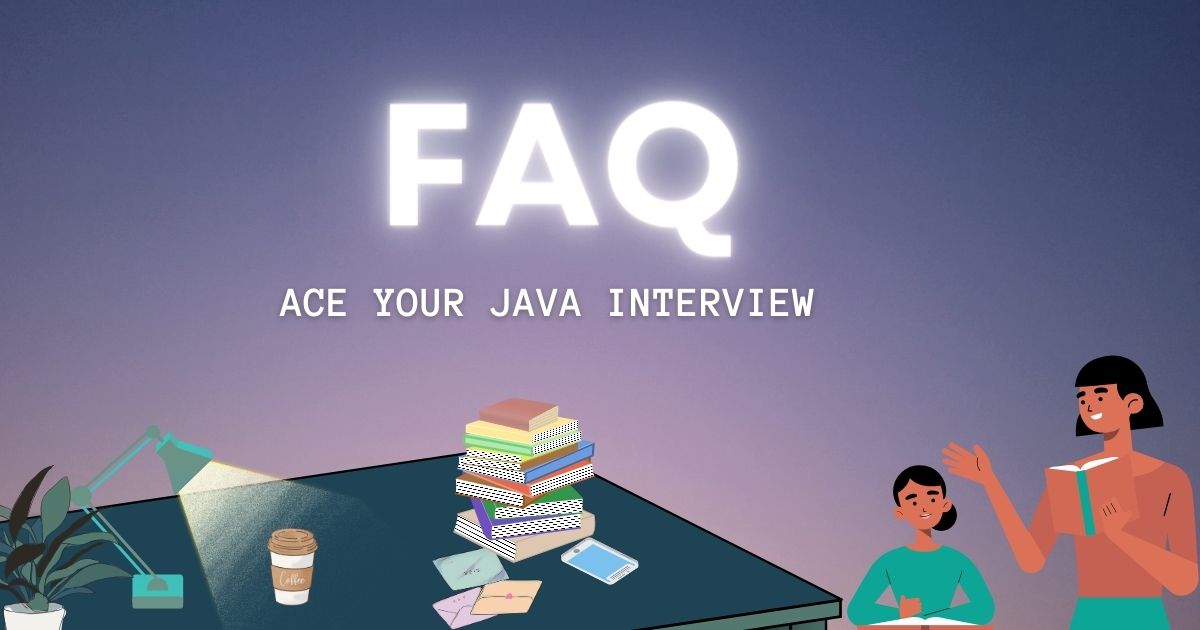Introduction: Getting hired in the cutthroat software development industry frequently requires negotiating technical interviews that evaluate your programming language skills. You must prepare yourself in advance if you want to ace your interviews. This post will address common interview questions (FAQs) for Java candidates, offering advice and solutions to help you succeed at this crucial stage of your job hunt.
Q1: What is Java?
Ans: Java is a class-based, object-oriented programming language that is designed to have as few implementation dependencies as possible. It is intended to let application developers write once, and run anywhere (WORA), meaning that compiled Java code can run on all platforms that support Java without the need for recompilation.
Q2: who developed java?
Ans: JAVA was developed by James Gosling at Sun Microsystems Inc in the year 1995 and later acquired by Oracle Corporation.
Q3: Differentiate between primitive data types and reference data types.
Ans: Primitive data types store simple values, while reference data types store references or addresses of objects. Primitive types are passed by value, whereas reference types are passed by reference.
Q4: What is the difference between JDK, JRE, and JVM?
Ans: JDK (Java Development Kit) includes tools for developing Java applications. JRE (Java Runtime Environment) allows the execution of Java applications, and it includes JVM. JVM (Java Virtual Machine) is responsible for running Java bytecode.
Q5: Explain the concept of object-oriented programming in Java.
Ans: Object-oriented programming in Java involves designing and implementing software using key principles such as encapsulation, inheritance, polymorphism, and abstraction. It promotes code organization and reusability through the use of classes and objects.
Q6: How is autoboxing and unboxing used in Java?
Ans: Autoboxing is the automatic conversion of primitive data types to their corresponding wrapper classes, and unboxing is the reverse process. This simplifies code by allowing the use of primitive types where objects are expected and vice versa.
Q7: Explain the four principles of OOP (Encapsulation, Inheritance, Polymorphism, Abstraction).
Ans:
-
Encapsulation: Bundling data and methods that operate on the data into a single unit (class).
-
Inheritance: Acquiring properties and behaviors of an existing class into a new class.
-
Polymorphism: The ability of a class to take on multiple forms through method overloading or overriding.
-
Abstraction: Simplifying complex systems by modeling classes based on essential characteristics.
Q8: What is the significance of the ‘super’ keyword in Java?
Ans: The ‘super’ keyword in Java is used to refer to the immediate parent class object. It is often used to call the parent class methods and access its fields when overridden in the child class.
Q9: How does exception handling work in Java?
Ans: Exception handling in Java involves using try, catch, throw, and finally blocks. If an exception occurs in the try block, it is caught and handled in the catch block, preventing abrupt termination of the program.
Q10:What is the difference between thread and process?
Ans: A thread is a lightweight process within a process, sharing the same resources, while a process is an independent program with its own resources.
Conclusion: These concise answers provide a solid foundation for tackling Java interview questions. Remember to elaborate further based on the interviewer’s follow-up questions and showcase your problem-solving skills. You are eligible for interviews if you are a certified student at a Java Training Institute in Varanasi, Delhi, Noida, or any other city. The questions listed above will be very helpful to you in these situations. Thanks for the read!




